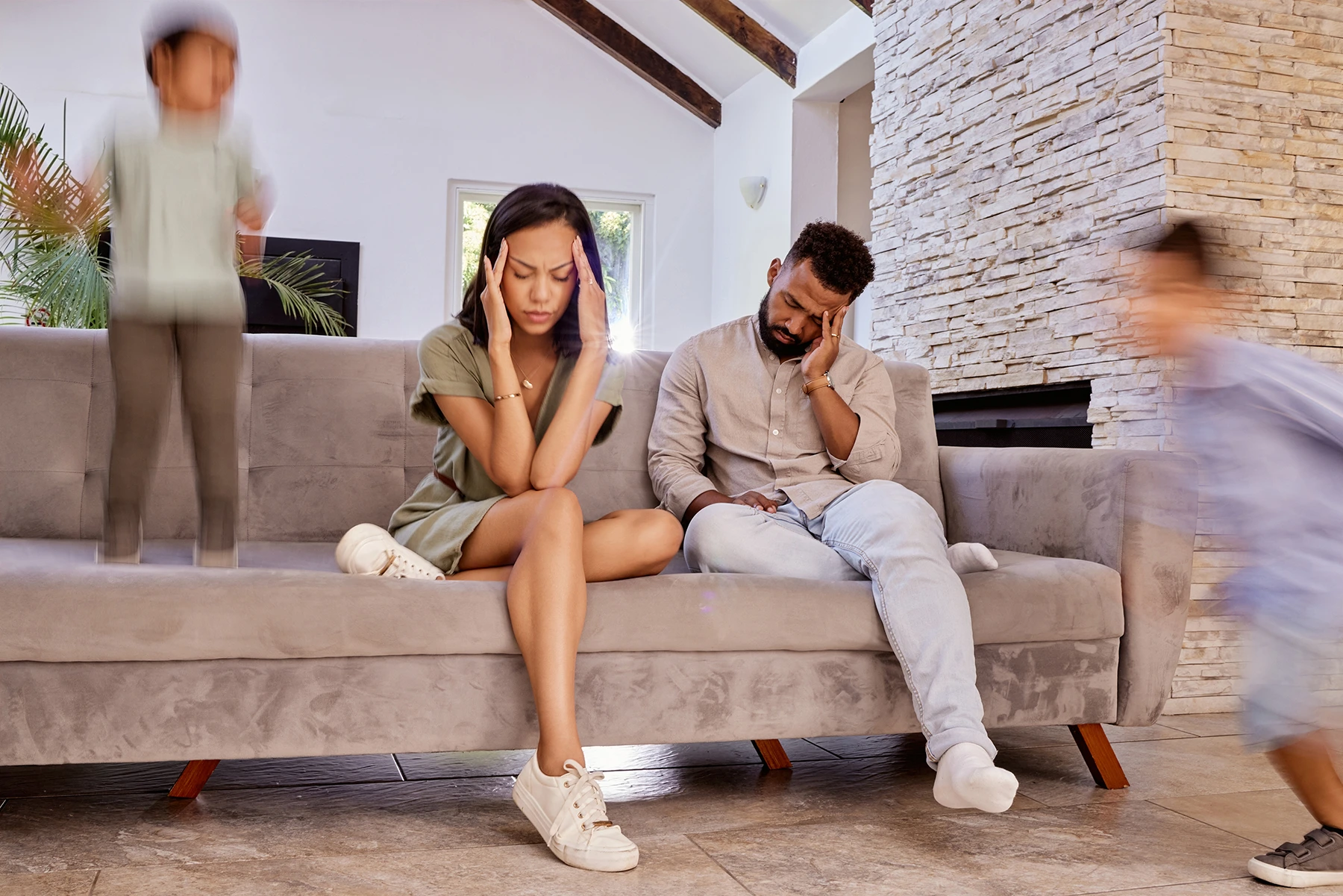Parenting on Empty? The Burnout is Real

Raising a child has never been easy, but today’s high-stakes, social-media-influencer environment has made it even more difficult. In some corners, parenting has become an Instagram-worthy event, an experience fraught with unrealistic expectations and public judgment. The result? More parents are reporting they feel burned out.
A sizable percentage of parents surveyed — 57% — reported parenting burnout in a recent study, and much of the blame falls on the pursuit of being the perfect parent.
A culture of achievement for both parents and children has led to physical and emotional exhaustion. Too often, parents are trying to do everything — and, experts warn, paying the price with their health.
Striving for perfection is a Sisyphean task: impossible.
“There is no such thing as a perfect parent,” says Jeffrey Brosco, MD, Ph.D., a pediatrician with the University of Miami Health System. “We all do the best we can in whatever situation we find ourselves.”
A nationwide survey, published in May 2024 as “The Power of Positive Parenting: Evidence to Help Parents and Their Children Thrive” asked more than 700 parents to fill out an easy-to-use burnout scale that helped researchers measure their burnout. Those questions encompassed a variety of situations, from whether or not parents felt like they were always in survival mode to moments of parental irritation.
The results of the 2023 report were actually an improvement over a similar study done two years earlier by the same Ohio State University nursing researchers. That first report on parenting burnout, conducted a year after the Covid-19 lockdown, found that 66% of working parents responding to the questionnaire met the criteria for burnout. Though the lockdown-era pressure to wear multiple roles may have eased somewhat, the conditions that affect a parent’s mood and mental health are still present.
Even as post-pandemic life has returned to the semblance of normal, too many parents find themselves toggling between jobs, household duties, and chauffeuring their children to an endless list of activities — all in search of the elusive bubble of safety and structure, Dr. Brosco says.
“Over time, the sense that we need to control everything in our child’s life has changed,” he says. “Children don’t walk to school. They don’t ride their bikes around the neighborhood or have a lot of free play. Now life is a lot more structured.”
In other words, instead of free play with the neighborhood kids there are play dates, arranged by harried parents. Rather than allowing an elementary school child to walk to school or a nearby friend’s home, a parent drives them.
All this arranging and organizing takes a toll on the parent, who must deal with chronic stress and exhaustion.
Children, Dr. Brosco says, also pay the price. When parents feel burnt out, their kids suffer similar behavioral and emotional consequences, including depression, anxiety and stress. And when adults over-parent, they send an unspoken message that the world is a dangerous place where the child can’t be trusted to navigate without adult supervision. In short, too much control prevents a child from learning how to get along with his peers and how to make sound choices.
Ironically, this parental need for 24/7 supervision comes at a time when children are healthier than ever and their environment safer — a contrast that Dr. Brosco calls “a paradox.”
What’s more, social media has exacerbated the trend, as parenting influencers post curated photos with glowing commentary. Such unrealistic photos give the impression of perfection: well-behaved children, calm parents, and ideally managed family events.
“Parents have always compared themselves to other parents,” Dr. Brosco says. “But social media has taken it to another level. The thing is, that’s not real life.”
Good parenting can be exhausting, but it doesn’t have to lead to anxiety and depression or to an overwhelming sense that one will never measure up.
Here are some tips to prevent parenting burnout from Dr. Brosco:
- Give yourself a break. No one is the mythically calm and collected parent who takes every situation in stride. You’re going to make mistakes. Everyone does. Just learn from them and move on. “Take a deep breath,” he says. “There’s a lot of room for different kinds of parenting.”
- Practice self-care. A life centered only on your child is detrimental, both to the child and to the parent. Make time for yourself and for other relationships. “I sometimes write prescriptions for parents to go out on dates,” Dr. Brosco adds.
- Cut back on extracurricular activities for children. Downtime is important. The survey on parental burnout found that “the lighter the load of structured extracurricular activities, the fewer mental health issues in their children.”
- Stop planning your child’s free time. Allow him to get bored, to make up his own games, to discover what he likes on his own. A parent shouldn’t be a round-the-clock social secretary. “Kids do better when they have creative free time when they can figure out the world on their own,” Dr. Brosco says. Rather than racing to and from planned activities, “encourage curiosity and the joy of learning.”
- Reach out for help if you’re feeling chronically anxious, depressed, or overwhelmed. Your child’s pediatrician can offer referrals. There are also plenty of online resources to help you cope. Dr. Brosco likes the American Academy of Pediatrics’ healthychildren.org website.
The site offers evidence-based tips and advice on a variety of subjects, from safety and prevention to nutrition and fitness.
Written by Ana Veciana-Suárez, a regular contributor to the University of Miami Health System. She is an acclaimed author and journalist who has worked for The Miami Herald, The Miami News, and The Palm Beach Post.
Resources
https://www.healthychildren.org/English/Pages/default.aspx
https://www.sciencedaily.com/releases/2024/05/240508093726.htm
Tags: child care, Dr. Jeffrey Brosco, parenting tips, pediatric care in Miami
